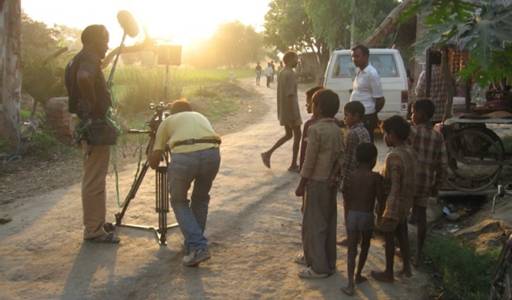|
Bias
Haunting:
A s a reporter, I have attended numerous media interactions and press conferences, but my visit to PACS Programme - TARA Akshar media interaction on March 26, 2008 at the Indian Women’s Press Corps, New Delhi, was an altogether different experience. For one thing, this was my first visit to a media interaction organised by an NGO.Actually, nowadays, most journalists prefer going to a press conference where either some celebrity has been invited or the venue is a five star hotel, because covering an event with a celebrity increases the TRP meter of the respective news channel and visiting a five star hotel surely guarantees irresistible delicacies. But within such a cocoon of comfort and self-priorities, journalists have forgotten some basics of media ethics – Social Responsibility. Fortunately, I realised this when I attended the PACS Programme - TARA Akshar media interaction. I was not particularly excited about the entire affair. To me, it was just any other press conference. Soon I realised my error. On reaching the venue, the first thing that I saw were two young rural women sitting just outside the conference hall. Later, they were introduced as Harpyari and Anjana of Dhamala Village of Firozpur District, Haryana. To my surprise, they were supposed to interact with the media. I was not very keen with the idea of inviting these women to a press conference that included journalists from national dailies and news channels. I was also unhappy because these women were supposed to discuss their experience with the TARA Akshar programme and I was unsure about their participation in the interaction, as it was their maiden exposure to media. Furthermore, they were from a community where women have very limited say in any matter. However, all of my apprehensions were cleared in short order. When Harpyari came over to
speak, she did the unexpected. She was loud and clear. This did not seem
to be her first public appearance. She answered all the questions with
ease. Even
During the press conference, I
met a couple of my journalist friends who were quite impressed by the
TARA Akshar programme and on interacting with the beneficiaries.
When I asked them about their experience, most of their answers really
surprised me. ‘We really miss a lot good things which are happening
around us and generally we focus on things which are not much relevant
for the society’, said a journalist And it is quite true. The TARA Akshar programme, which made 45,000 rural women literate within a year, is naturally more important news than the latest escapades of any movie celebrity. Also, even this notion that development news does not attract audience is not true at all. Most of the news channels and national dailies not only covered the PACS programme TARA Akshar press conference but also gave their critical comments, which was quite surprising. Overall, it was a pleasant surprise and a revelation that the media, in the flow of TRP and the readership race, does not always forget any important news of the development sector. It is quite disheartening to see entertainment news and controversies making headlines or being in the front page in a developing country like India, where more than 70% of the population still lives in rural community. In India, the media has to understand its responsibility towards social development. Covering development news will not hamper their business. In fact, by highlighting development-related issues on their respective channels or newspapers, it will not only benefit the rural community but it will also attract rural communities to Donation for the channels or newspapers regularly, which will naturally increase the TRP or readership, which converts into more revenue for the news agency. Though this realisation of social responsibility is building up in the media sector, it is quite slow in pace. The current difference in the coverage of news is quite disappointing. There are some stories that simply do not make the news, while others more than make up for it in terms of volume, even though both may be in the same zone. Let us look at a few random examples: • The reigning Indian film personality, Amitabh Bachchan’s house getting flooded is news, but 1.3 million people in Bihar and Orissa losing their homes due to floods is not newsworthy • A poor little boy being stuck at the bottom of a deep well generates interest, while a Dalit boy burnt alive for daring to draw water out of a well does not make the grade • Running for a cause by celebrities is news, the landless marching to Delhi - in the largest march since Independence - is not • The Sensex at 20,000 is news, but companies laying off people due to the strengthening rupee is not considered worthy of print or air time • Discrimination against starlets is news, but the same against minorities and the underprivileged is taken as the norm • The diets of celebrities is news, but the millions across the globe not having any diet to speak about is not so sensational The media (Newspaper/TV/Radio)
has been reaching out to millions of
Even so, hope is eternal. Nowadays, the media is showing some responsibility towards the society and has begun to realise that it is not only the entertainment sector that makes news or controversies. Nowadays, even big government programmes such as the National Rural Employment Guarantee Scheme (NREGS) are attracting many journalists to cover incidents linked with their schemes. Similarly, there is commendable media coverage in social programmes like the Mid Day Meal Programme, Pradhan Mantri Gram Sadak Yojana, etc. Hence, the media bias in the media fraternity towards the rural community or the development sector is quite evident and present but it is not entirely correct. Neither is this going to help the media agencies in any manner, nor are they representing a responsible fourth pillar of the constitution. The media has to realise its role in carrying development through their medium to each and every corner of the society and country. If India is eying Vision 2020, then this has to start from today. q Devanjan Khuntia dkhuntia@devalt.org
|
 .
.  Indians. This itself openly demands
a social responsibility. Journalism is indeed a tough task and demands a
lot of discretion. But the media, specially the television media, has
become so commercial that people are creating news by themselves (sting
operations) to be in the forefront in media competition. The importance
of reporting accurate, fair and correct news is now overpowered by the
self-seeking commercial domination in the press industry. Aggressive,
interrogative and persistently fearless journalists have replace be
noble, virtuous and courteous ones. Reports published on some issues are
getting increasingly judgmental and defamatory. Provocative compositions
are employed to sensationalise issues or to prompt the people to think
and behave in a certain way that may seem appropriate to the agenda of
the press. Social agendas incompetently deliberated by the press have
grievous consequences in the society, and this has been going on for a
long time. The media has been instigating repugnance between the people
and some political parties in order to benefit other political parties.
Questions in the poll conducted by press are so composed that the result
achieved is as per their desire. People’s opinions are sought with
biased questions that will derive answers that are beneficial for the
press.
Indians. This itself openly demands
a social responsibility. Journalism is indeed a tough task and demands a
lot of discretion. But the media, specially the television media, has
become so commercial that people are creating news by themselves (sting
operations) to be in the forefront in media competition. The importance
of reporting accurate, fair and correct news is now overpowered by the
self-seeking commercial domination in the press industry. Aggressive,
interrogative and persistently fearless journalists have replace be
noble, virtuous and courteous ones. Reports published on some issues are
getting increasingly judgmental and defamatory. Provocative compositions
are employed to sensationalise issues or to prompt the people to think
and behave in a certain way that may seem appropriate to the agenda of
the press. Social agendas incompetently deliberated by the press have
grievous consequences in the society, and this has been going on for a
long time. The media has been instigating repugnance between the people
and some political parties in order to benefit other political parties.
Questions in the poll conducted by press are so composed that the result
achieved is as per their desire. People’s opinions are sought with
biased questions that will derive answers that are beneficial for the
press.